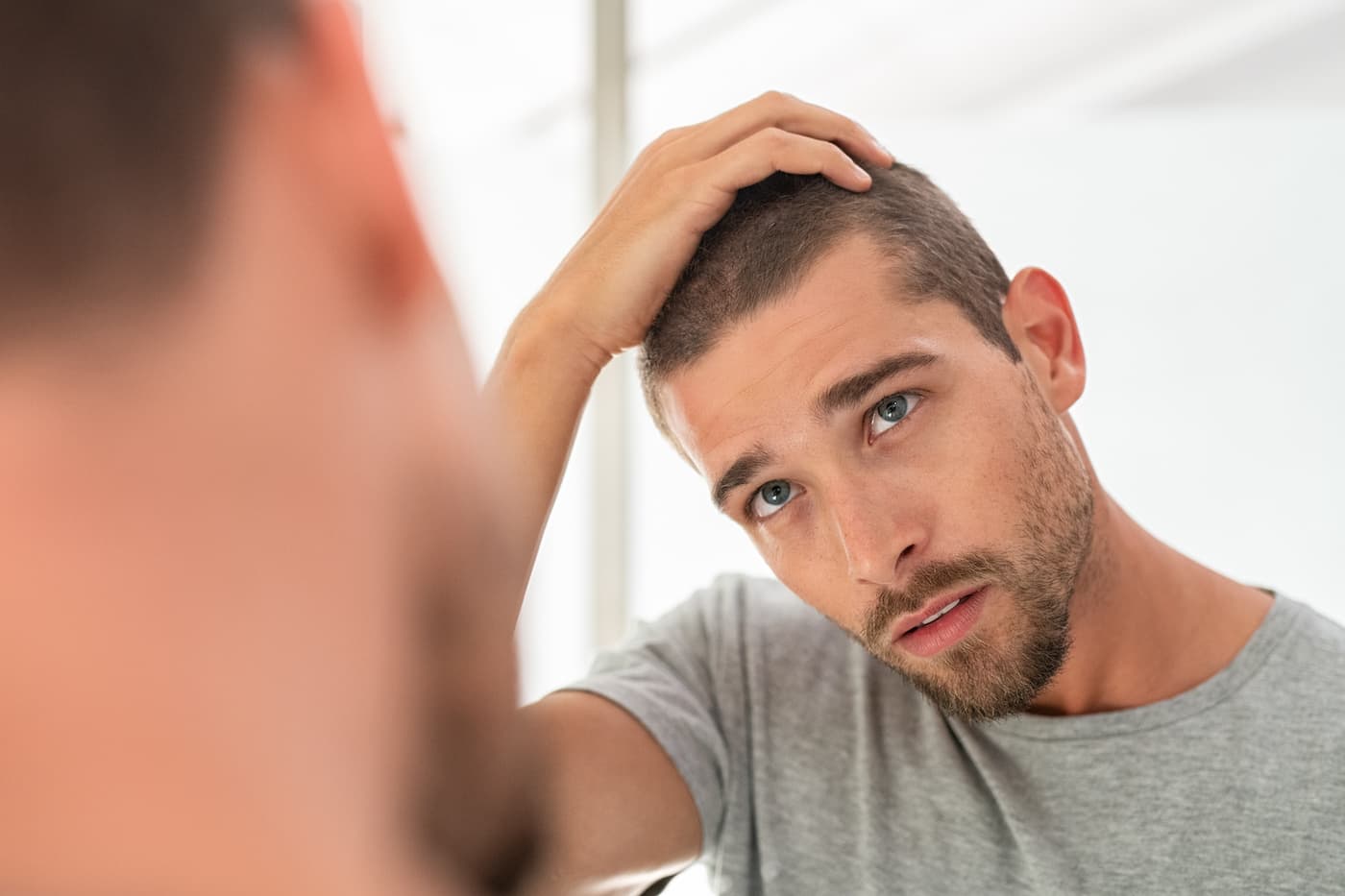Hair loss is unfortunately an inevitable stage that everyone will experience in their lives. However, the causes will differ from person to person.
Dealing with stress, life traumas and malnutrition are many reasons why our hair falls out. When you brush your hair, do you find a few strands falling to the floor, or after a hair wash, is there a lot of hair left in the plug?
Whilst these factors aren’t a cause for concern, it can be hard to differentiate between natural hair loss or warning signs for a wider issue. Androgenetic alopecia also referred to as male or female pattern baldness, is the most common cause of hair loss.
I spoke with Firat Siksik a trichologist at Sanamentum, who has shared the 7 common causes of thinning hair and hair loss so you can detect the origin of your problem.
1) Genetics
It is well known that hair loss can be picked up by genetics. If it’s common in your family line, it can occur as early as your 20s or 30s. You can try to fight this early to prevent the inevitable.
Begin a routine that focuses on your scalp health, from supplements to the right diet. If you do find more hair than usual being shed, visit a dermatologist for an evaluation on the best products to use to prevent further hair thinning.
2) Heat and chemical treatments
Of course, the more heat and chemicals you use on your hair, the weaker it becomes. Bleaching and dyeing your locks will take its toll over time.
If you attend the hairdresser on a regular basis, talk to your colourist about your hair health goals so they can advise on different products and treatments.
You can also make changes such as opting for balayage instead and using hydrating products such as Olaplex. Try to reduce heat styling, and always use heat protectants before using heat tools.
3) Lack of protein
Certain aspects of your diet go hand in hand with your hair health. If your diet lacks protein, common in vegans and vegetarians, you could notice weaker hair growth over time.
Non-animal protein diets can cause a deficiency in amino acids, so it’s important to find other high protein foods to incorporate it into your diet, such as lentils, quinoa, and tofu, for strong and healthy hair growth.
Calorie-restrictive diets can also lead to hair loss, it’s important to consult a dietitian to create a plan that suits your body’s needs before you make drastic changes.
4) Vitamins deficiencies
Vitamins and minerals play a vital role in your hair health. The most common deficiencies which are linked to hair loss are vitamin B12, biotin, folate and riboflavin.
Iron deficiency in pre-menopausal women is one of the main causes of hair loss that could indicate an underlying medical condition.
Iron contributes to haemoglobin production, which helps deliver nutrients and oxygen to hair follicles. Without enough, hair will have stunted growth, and lead to thinning hair.
If you find you are lacking in these, you should talk to your doctor about diet changes and supplement recommendations that can correct the imbalances.
5) Traction alopecia hair loss
Traction alopecia is hair loss caused by repeated and prolonged tensile forces applied to the follicles, most common in braids and long dreadlocks.
The hair loss pattern normally starts where the hair is under the most strain, so the edges. Ensure you give your hair a break in between sessions and ease off on tight hairstyles.
If you catch it early, it is reversible, and your hair should grow back in a few months. If not, seek advice from a dermatologist.
6) Medications
Some medications are linked to hair loss as side effect. However, when weighed up, your overall health is more important your hair loss, so taking the medication is necessary.
Talk to your doctor about the length of your medications as this can cause long-term thinning. If you’ve completed your medication course and your hair health hasn’t improved, seek a medical professional to identify the cause of your shrinking follicles.
7) Stress
Stress can make your hair fall out and also trigger scalp problems such as dandruff and problems in the digestive system, all of which have a negative impact on your hair.
The type of hair loss most caused by stress is telogen effluvium. We have thousands of hair follicles on our hair, either in the anagen phase or telogen.
With telogen effluvium, more hairs move from the anagen phase into the telogen phase, meaning you lose more hair than usual. Stressful experiences, both physical and emotional can cut the anagen phase short and produce less growth.
What is Hair Transplantation?
“Hair transplantation is a surgical procedure that aims to help patients regain their lost hair. There are many factors that contribute to hair loss, including stress, genetic factors, hormonal imbalance, etc.
No matter what the reason for hair loss is, hair transplant surgery can fill in bald patches completely. The hairs are collected from a dense area of the scalp—typically the back of the head—and are moved to an area with thinning or balding.
The procedure is performed under local anaesthesia and usually takes between 5 to 8 hours. Patients leave the facility immediately following surgery; there is no need to stay overnight in a hospital setting.”
